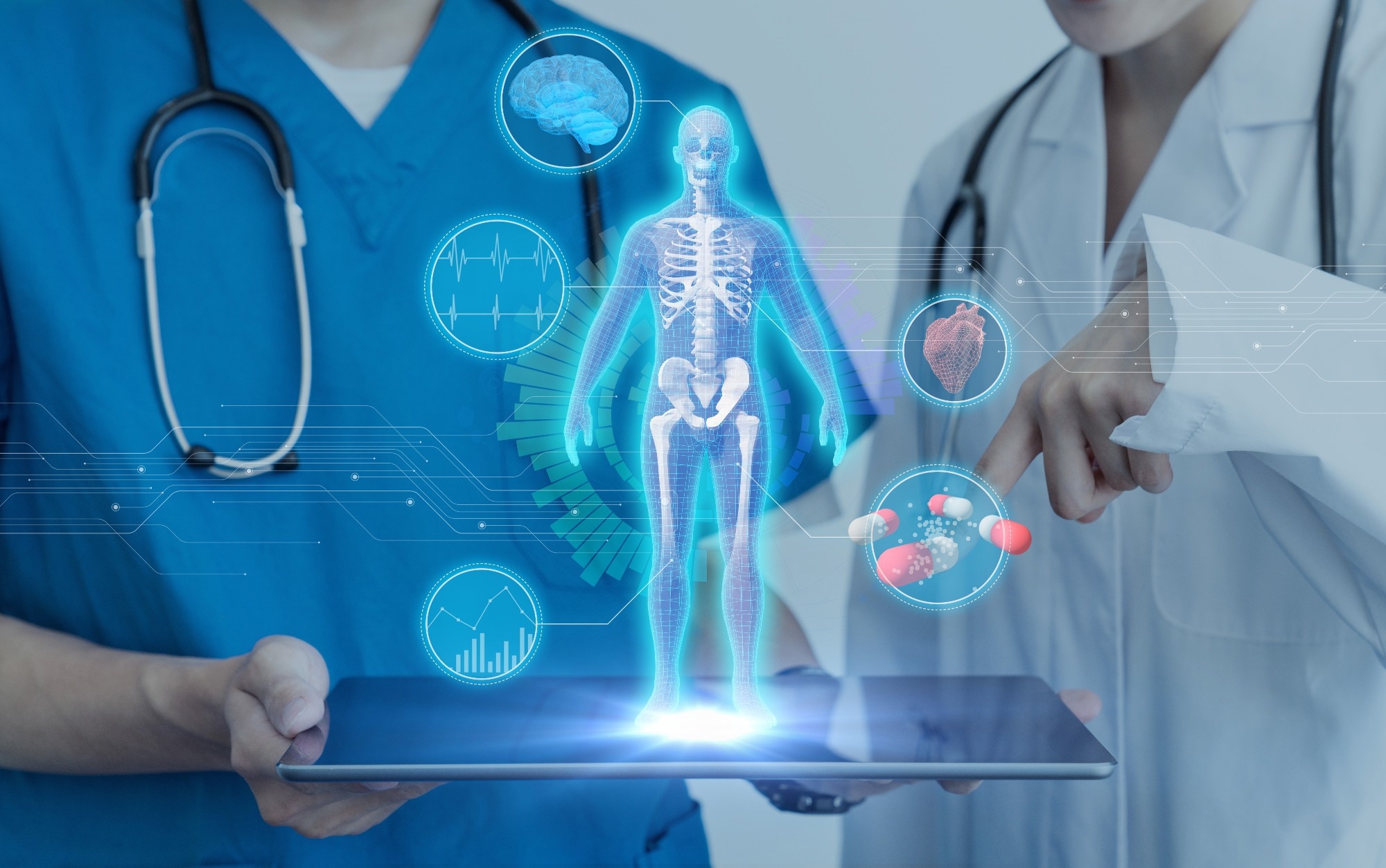Currently achieved using costly and resource-intensive human-simulated patients (HSPs), the ATLAS platform presents a cost-effective, repeatable, and personalized alternative to conventional communication practicals known as virtual simulated patients (VSPs).
 Study: Generative Artificial Intelligence as a Tool for Teaching Communication in Nutrition and Dietetics Education—A Novel Education Innovation. Image Credit: metamorworks / Shutterstock.com
Study: Generative Artificial Intelligence as a Tool for Teaching Communication in Nutrition and Dietetics Education—A Novel Education Innovation. Image Credit: metamorworks / Shutterstock.com
The role of HSPs in nutrition education
Communication between a nutrition and dietetics practitioner and their patient is essential for optimal clinical outcomes for all medical fields. To date, there remains a lack of research focused on optimizing the inculcating of communication skills in students of the field. The practical application of communication theory, in particular, presents an obvious challenge in the absence of trained humans capable of simulating a nutrition and dietetics intervention session.
The traditional solution to this problem has been the utilization of HSPs, which are mechanical and often computer-controlled mannequins that replicate elements of human physiology. Unfortunately, the development, frequent operation, and maintenance of these HSPs are costly and highly resource-intensive.
To overcome these challenges, AI has facilitated the development of novel VSPs. Compared to HSPs, VSPs are entirely computer-based and built upon large-language models, such as those that power applications like ChatGPT.
What is ATLAS?
ATLAS is a state-of-the-art voice-to-chat-based platform initially developed by the study authors to improve the learning experiences of dietetics students at Monash University in Melbourne, Australia.
ATLAS represents the next generation of communication experiential learning by representing the confluence between large language models (LLMs), educator-designed patient personas, and generative AI algorithms. ATLAS also negates the need for costly HSPs, which the model arguably outperforms, given its adaptability to the specific needs of a student given course requirements.
Interaction with the VSP through voice recognition represents a more realistic student–patient interaction, requiring students to articulate their message professionally, with empathy and clarity."
The experiential learning session comprises a cascade of steps initiated by a student's voice, which the model translates into text, processes given the parameters of its persona, and outputs as text and speech for the student's response. Notably, the model mimics real-life interactions by accounting for the rapport built between the student and VSP and adjusting its responses accordingly.
VSPs were further developed by outlining a personal communication style (for example chatty, direct, anxious, disengaged), replicating the diversity observed in the real world…Body language was indicated in parentheses to help students understand the importance of non-verbal communication."
Did students find ATLAS beneficial?
The ATLAS platform is primarily used by the Master of Nutrition and Dietetics program students at Monash University, who must interact with the VSP during various stages of their education. Importantly, students are only introduced to the platform for experiential learning after completing their didactic learning, thus ensuring that they have the knowledge needed to respond suitably to the VSP.
Student responses to the platform have been largely positive, with many students attempting to improve their rapport and performance with the platform, even outside class hours. In fact, many students have expressed their enthusiasm about the platform, particularly its ability to provide individualized and immediate feedback that emphasizes the importance of self-reflection and improvement for future sessions.
Conclusions
ATLAS represents a step forward in experiential learning within the medical field. Unlike traditional methods, this approach is cheap, easy to develop and deploy, and improves its performance over time, given its LLM pedigree. ATLAS also considers mistakes a part of the learning process and encourages repetition, thereby supporting the growth of communication skills in its users.
This platform not only bridges the gap between theory and practice in communication skills training, but also the gap between generative AI, academics and experienced practitioners."
Journal reference:
- Barker, L. A., Moore, J. D., & Cook, H. A. (2023). Generative Artificial Intelligence as a Tool for Teaching Communication in Nutrition and Dietetics Education—A Novel Education Innovation. Nutrients 16(7), 914. doi:10.3390/nu16070914